Before we get started, I have a quick scheduling note: the twins will be turning one next Sunday (how?!) and I will be taking the rest of the month off of blogging in order to spend time with my family and celebrate my babes. I’ll meet you back here next week for a full recap of all of the month’s happenings and highlights.
And now, on to what you’ve come here for—some book reviews! Today, we have two thrillers (one of the domestic variety, and one that is global in scope), as well as two nonfiction books on very different subjects. Let’s get right to the reviews!
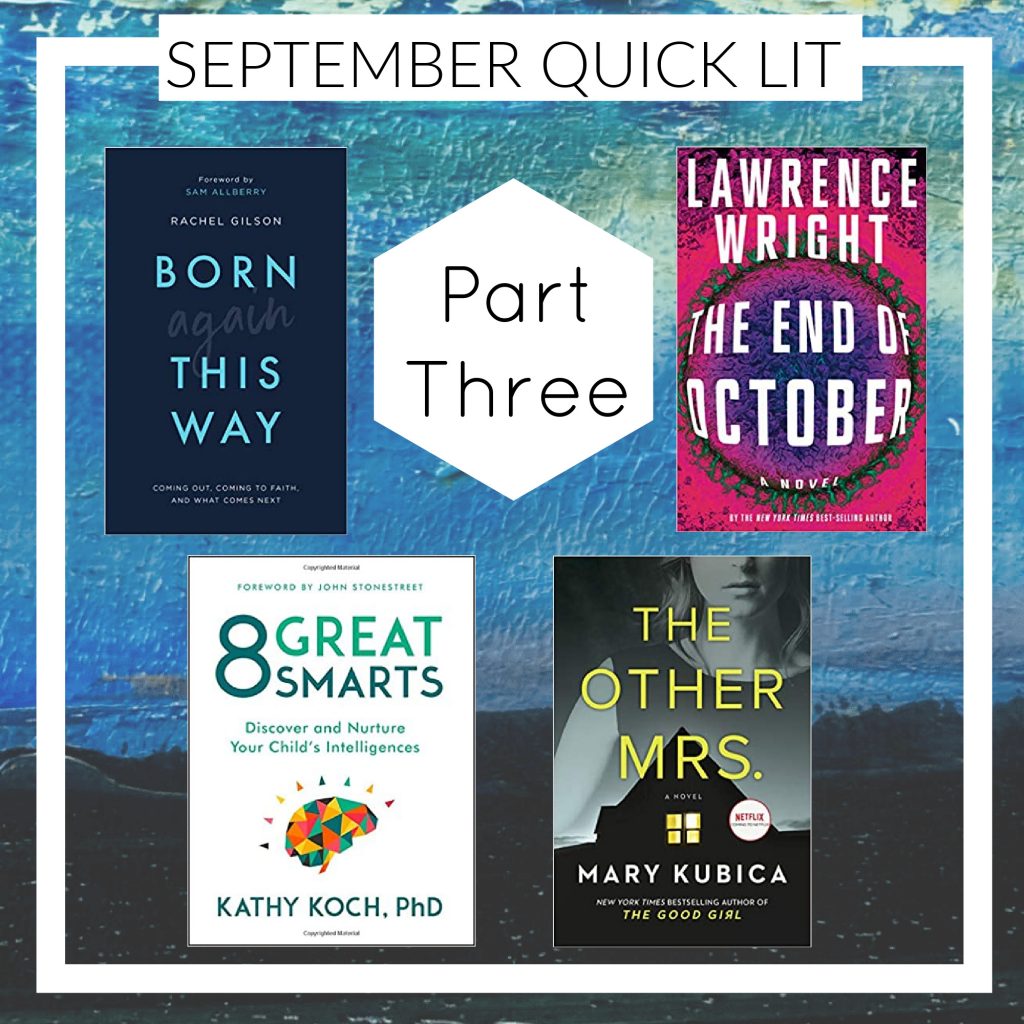
Born Again This Way: Coming Out, Coming to Faith, and What Comes Next, by Rachel Gilson: Rachel Gilson knew she was attracted to women at a young age and was content with her lifestyle choices until college, when she became a Christian and felt called to say goodbye to homosexual relationships. In Born Again This Way, Gilson shares her experience of living faithfully to God’s calling while still struggling with same-sex attraction.
Written primarily to an audience of individuals experiencing the pain of same-sex attraction, Born Again This Way is also relevant for those of us who want to approach this polarizing topic with Biblical faithfulness, compassion, and nuance. The book addresses many difficult questions, including how God could allow individuals to struggle with same-sex desires while also asking them to abstain from homosexual activity; how gay Christians should approach same-sex friendships and marriage to members of the opposite sex; the if/when/how of grappling with same-sex attraction and whether or not these desires can change; and the degree to which this all matters within the broader context of our walk with Christ.
I admire Rachel Gilson’s candor in sharing her own struggles, particularly because she finds herself in a position that is criticized by both Christians (because she still identifies as same-sex attracted), and non-believing members of the LGBTQ community (because she rejects the permissibility of same-sex relationships). I appreciate her perspective, especially her thoughts on singleness, the church’s warped perceptions (and obsession with) romance/ marriage/ sexual fulfillment, and her refusal to make light of sin while also proclaiming the grace and forgiveness that are available to us in Christ. Rachel Gilson’s story is very similar to those of David Bennett and Jackie Hill Perry; this book contains less personal story than theirs (making it feel somewhat clinical at times), but Gilson compensates for the depersonalization with deep theological dives and convicting Biblical evidence for her decisions and claims.
This is a must-read for same-sex attracted Christians struggling to reconcile these two disparate identities, and for those of us who are not same-sex attracted but want to learn about these issues from someone who has first-hand experience with them. The book is a short read, but if you don’t want to commit to buying or borrowing the book, you can hear Rachel Gilson share her story on this episode of The Happy Hour.
My Rating: 4.5 Stars. (Rounded down to 4 stars on Goodreads)
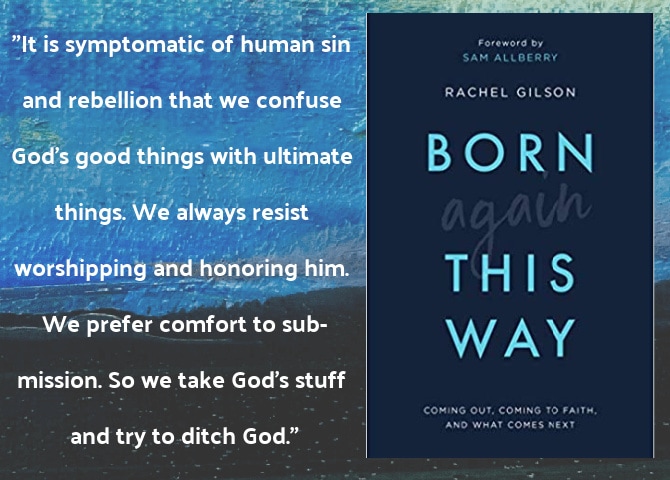
The Other Mrs., by Mary Kubica: When Will Foust’s sister dies unexpectedly, he inherits her house in small town Maine, prompting Will and his wife, Sadie, to relocate their family from their home in Chicago. The couple hopes that the move will be a fresh start as they work through Will’s past infidelity and their oldest son’s recent “problems” at school. But Sadie is not at all comfortable in this eerie house, nor is she happy about the presence of her teenage niece, Imogene, whom the Fousts also “inherited” after her mother’s death.
Shortly after the Fousts’ arrival, their neighbor Morgan is found dead in her home and Sadie is soon consumed with the murder. Intent on uncovering the truth of Morgan’s death, Sadie begins to suspect that the people within her own home are not as they seem. The novel is told from the perspectives of a few narrators, which enhances the suspense and, though frustratingly cryptic at first, makes for an intriguing mind puzzle.
Like many thrillers, this one is best enjoyed if you go into it blindly, so I won’t share more of the plot, but I will say that what unfolds is a complicated and suspenseful tale with twists galore. I found the conclusion a tad too convoluted for my taste, but it certainly wasn’t one I saw coming. Although there are better domestic thrillers out there, if you’re a fan of this genre, this one doesn’t disappoint.
My Rating: 3.5 Stars. (Rounded down to 3 on Goodreads)
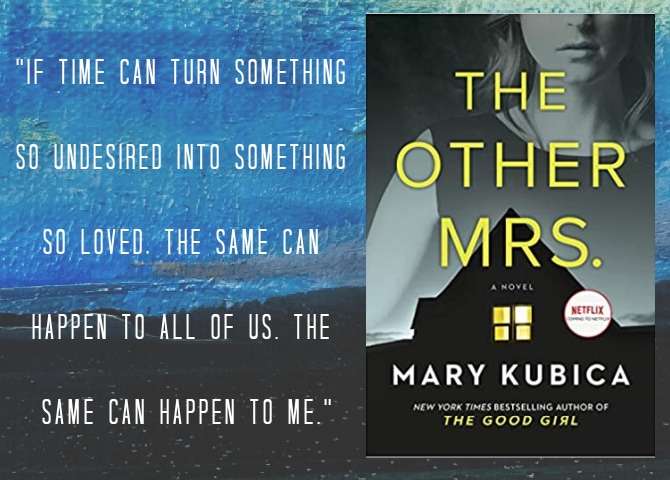
8 Great Smarts: Discover and Nurture Your Child’s Intelligences , by Kathy Koch: We all know someone who is very smart yet didn’t do well in school. Perhaps that was you, or maybe you’ve witnessed this with your kids. In 8 Great Smarts, Dr. Kathy Koch explains why and how recognizing your child’s intelligence is important for his or her academic, intellectual, spiritual, and social growth. Koch goes on to explain that intelligence isn’t as straightforward as we might have assumed, but that it can be divided into eight categories: Word Smart, Logic Smart, Body Smart, Picture Smart, Nature Smart, Music Smart, People Smart, and Self Smart.
In comprehensive chapters dedicated to each intelligence, Koch describes each of the eight smarts, outlines each smart’s strengths and potential weaknesses, and shows how parents and educators can awaken this smart in a child and help children utilize this smart in constructive ways. Koch gives ideas for how each smart might play into the child’s spiritual health, relationships, and character development, and she offers suggestions for potential careers that align with each type of intelligence. Koch also distinguishes between “smarts” and learning modalities (for instance, an auditory processors is not necessarily word smart, being body smart is not necessarily an indicator that a child is a kinesthetic learner, etc.) and between people/personal smarts and introversion/extroversion. Throughout the book, Koch honors the value of each smart and helps us recognize this value in our children and in ourselves. She is clear that children can be smart in multiple ways, and that these smarts are intrinsic but can also be further developed, and she gives great suggestions for fun and practical ways to do so.
I absolutely LOVED this book, which taps into my joint interests of education, parenting, and human behavior. Koch is a thoughtful and effective writer, and I found her ideas incredibly enlightening. As both a teacher and a parent, I’ve witnessed the importance of acknowledging each child’s unique strengths and weaknesses, but have found that it isn’t always easy to determine what these are or how to work with them once they’ve become apparent. 8 Great Smarts helped me get a clearer understanding of Charleston’s learning styles, strengths, and needs as a Logic, Picture, and Body Smart kid, and I feel much better equipped to both parent and educate him in the future. (The book comes with an access code to a quiz to determine your child’s smarts, though even without the quiz, I would have been able to determine Charleston’s styles based on the descriptions within the book.)
This book is an invaluable resource for anyone who has or works with children, and especially for homeschooling parents who are doing both. If you’ve ever questioned your own intelligence, you will also find much to appreciate. I borrowed this book from the library but found it so useful that I purchased a copy to own for future reference.
My Rating: 5 Stars.
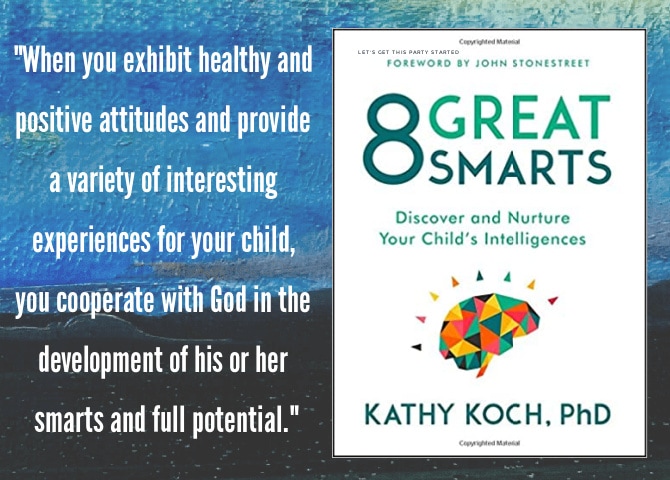
The End of October, by Lawrence Wright: Dr. Henry Parsons is an epidemiologist and microbiologist tasked by the World Health Organization with the daunting mission of preventing the spread of the deadly Kongoli virus. Parsons chases the virus from its origins in an Indonesian internment camp to Saudi Arabia and beyond. The virus careens across the globe, leaving a trail of bodies in its wake, and Henry and his cohorts must go to unprecedented lengths to put an end to what appears to be an act of biowarfare. Meanwhile, Henry’s wife and two children are facing the pandemic on the home front, and their odds of survival are not good.
Written in the style of a sweeping Tom Clancy thriller, this is the type of book I would have once written off as wildly imaginative; reading it now, I struggled to remember I was reading a book of fiction. The End of October released this past spring and was written much earlier, but the parallels between the Kongoli pandemic and our own Coronavirus pandemic are frighteningly similar, setting the stage for a realistic premise that some have found comforting but that I found pretty horrifying. The initial parts of the book are uncannily reflected in our current situation, and the story spirals into some frightening scenarios that I can certainly imagine coming true. However, this book was kept from being truly nightmare-inducing by the clunkiness of the writing. The characters are lifeless, the prose stilted, and the dialogue unwieldy—not too surprising, considering that Lawrence is best known for his nonfiction writing. And it is in the expository bits that Lawrence’s talents shine: he clearly did his research, and I appreciated the lengthy discussion of pandemics, pathogens, government disasters, and public health (<—subjects I never thought I’d have any interest in reading about!).
This book wasn’t a favorite for me, but if you are a fan of thrillers and are game for reading worst case scenarios about our present circumstances, you’ll definitely want to pick this up.
My Rating: 3.5 Stars. (Rounded down to 3 on Goodreads)
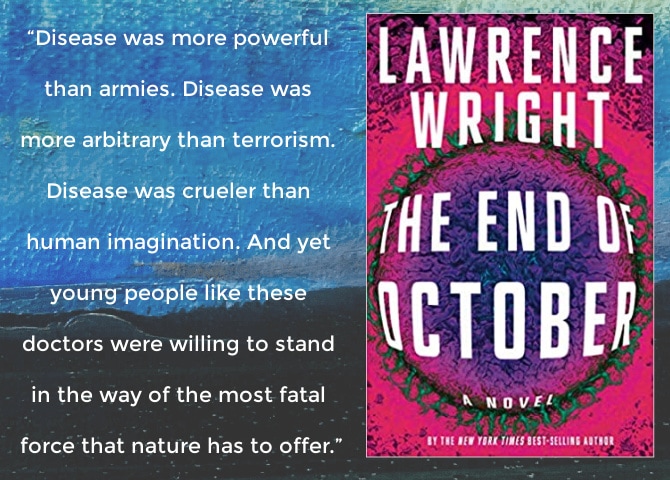
That’s a wrap for this month’s book reviews. I’d love to hear from you: what have you been reading lately? What books are you most excited about for fall?
Happy celebrating! 🎈🎉🎈🎉